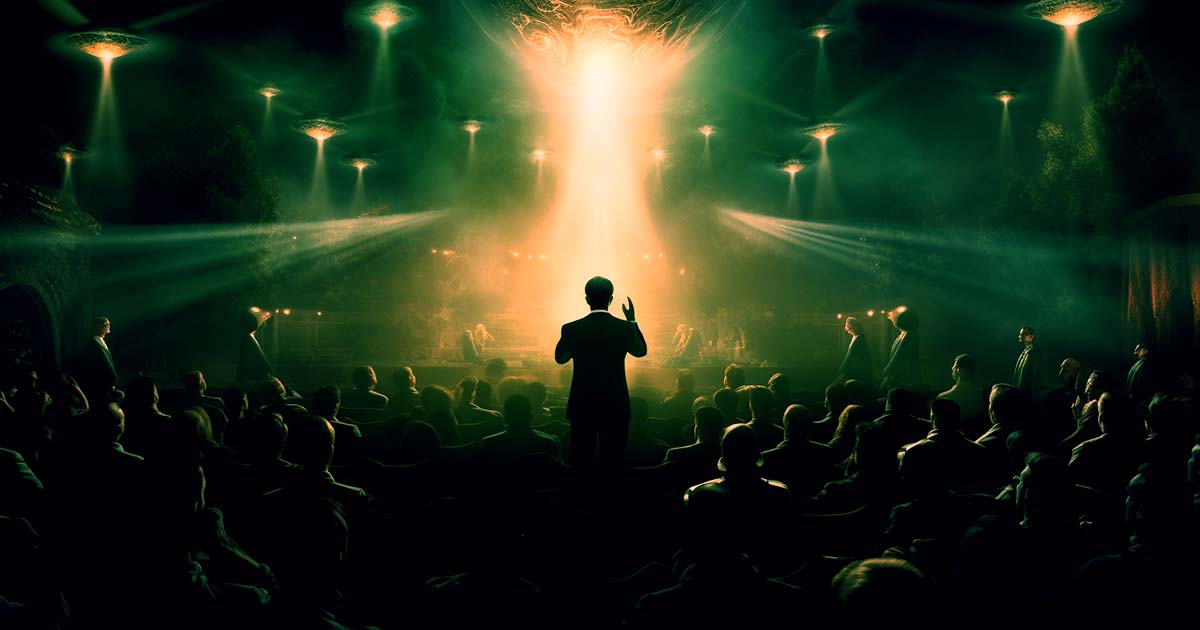Science Fiction and Free Will
Exploring free will in science-fiction films, this article delves into Christian doctrine and Arminianism's resonance with modern narratives.

Does watching science fiction movies help us understand a challenging Christian doctrine like human free will?
At least one Christian apologetics professor argued, "Yes."
In 2012, Dr. Clay Jones wrote an article for the Christian Research Journal, briefly making the case that science fiction films like Invasion of the Body Snatchers, The Terminator, The Adjustment Bureau, and others convey a deeper understanding of the doctrine of free will.
"I've learned that many Christians do not understand the nature or value of free will," wrote Dr. Jones back in 2012. "Indeed, many years ago, I too struggled with what free will is all about, but found an unlikely ally in science fiction. Sci-fi books, movies, and television programs frequently feature free will as a major theme and thus help illumine this abstract topic."
Free Will is a Common Theme in Science Fiction
According to Dr. Jones, we can see examples of free-will-subplots in some science fiction. For example, storylines wherein some aliens want to enslave humanity, i.e., taking away free will.
"In the 1956 classic Invasion of the Body Snatchers...mysterious pods arrive from outer space, and while people sleep, an organism replicates them as emotionless “pod people,” wrote Dr. Jones. "One pod person tells a terrified hostage, 'Love, desire, ambition, faith— without them, life’s so easy.' But the heroine protests, 'I don’t want a world without love or grief or beauty.' The heroine believed that a world that included grief was preferable over a world where no one ever felt anything at all."
Similarly, there are stories of created things that gain free will. Dr. Jones named The Terminator, The Matrix, and Blade Runner, but the theme is evident in many, many other stories.
The Creator
One might argue that the 2023 film, The Creator, is another example of a science fiction film plot wherein human creations seek the right of free will.

"We learn that AI were not programmed for violence or destruction; that was something they learned later from humans. AI also promise that if they win the war, they won’t seek revenge against the West. They only want to be free," wrote Emily Tsiao in a movie review for the Christian website PluggedIn.
Certainly, this film is more of a science-fiction war story than an intellectual jaunt, but the concept is apparent.
"None of these shows ultimately display a completely Christian theology, but parts of them ring true," wrote Dr. Jones in his Christian Research Journal article. "That’s why many people are drawn to and fascinated by these free-will shows. And why shouldn’t they be? After all, if Christianity is true, then God did create free beings, both angels and humans, so it would make sense that our very nature would resonate with creation’s ultimate metanarrative. It is no surprise, then, that these plots would recognize that free will is valuable; essential to being human; worth fighting for; and even though it causes hardship, suffering, and grief, it is still preferable to a blissful existence that excludes being able to make significant moral choices. In these ways, science fiction helps explain what life is about."
Jacobus Arminius
The problem is that not all Christians believe that God created free beings to the same extent that Dr. Jones implies. The position he is espousing is called Arminianism, and it comes from the ideas or teachings of Jacobus Arminius, who was a Dutch theologian born in 1560.
Arminianism is often contrasted with Calvinism, particularly on the doctrine of predestination and the nature of human free will.
The main idea is that human free will and God's sovereignty both exist in such a way that humans can respond to God's grace.
After Arminius's death, his followers summarized their views in a document known as the Remonstrance, developing five points of disagreement with Calvinism.
In turn, this led to the Synod of Dort (1618–1619), a council that the Dutch Reformed Church convened to settle the controversy. The Synod condemned the Arminian positions and affirmed the Calvinist perspective, leading to the formalization of the five points of Calvinism in response to the five articles of the Remonstrance. Nonetheless, Arminianism is extremely popular with modern American Christians.
Given this popularity, it makes sense that some science fiction plots "ring true," as Dr. Jones put it.
Dr. Jones's exploration of free will through science fiction offers an interesting avenue for understanding a critical theological concept. While not all Christians may agree with the Arminian perspective —I don't for example — the popularity of such narratives suggests a universal curiosity and appreciation for the freedom to choose—one that transcends the boundaries of genre and enters into the realm of spiritual reflection.
As we engage with these stories, they not only entertain us but also invite us to ponder the profound implications of our ability to choose a gift that is both a responsibility and a reflection of the divine image within us.
Resources & Reading
- Chosen by God with R.C. Sproul.
- Is God Sovereign over My Free Will?

